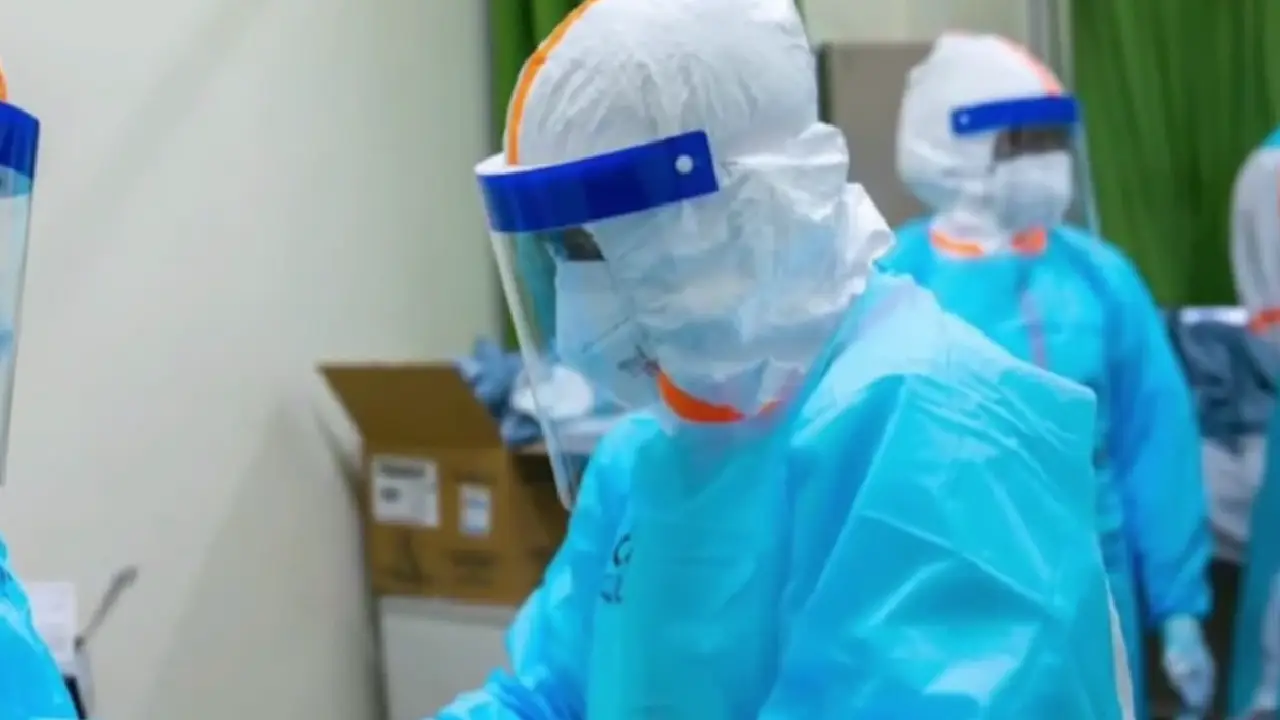The Ministry of Health reports that as of October 2, 2024, a total of 36 cases of the Marburg virus have been confirmed in Rwanda since the outbreak on September 27, including seven new cases. Of these, 25 are still under medical care.
Since the outbreak began on September 27, 11 people have died from the virus, including one death recorded on October 2.
State Minister in the Ministry of Health, Dr. Yvan Butera, revealed that 410 people who had contact with infected individuals are being monitored for testing. Preliminary tests on these individuals have shown that they are not infected, but further testing is ongoing to confirm.
The Rwanda Biomedical Center (RBC) explained that there is currently no specific treatment or vaccine available for the Marburg virus, but trials for drugs and vaccines are progressing well.
The center emphasized that the current focus is on providing supportive care that relieves symptoms, and when administered early, it increases the chances of survival.
Dr. Butera announced that Rwanda is set to begin trials for vaccinating and treating people, with the aim of protecting those at high risk of contracting the virus.
Dr. Butera stated, ‘We are close to starting trials for vaccines and treatments to protect those at high risk.’
In an exclusive interview , Minister of Health Dr. Sabin Nsanzimana said that vaccinations could begin in the next two weeks, starting with individuals already in hospitals.
He said, ‘Yes, we are planning it soon, and it could even happen in less than two weeks, but the exact date has not yet been finalized.’
The vaccines and treatments to be used are in the final stages of research, and Dr. Nsanzimana mentioned that Rwanda is working closely with the World Health Organization (WHO).
He said, ‘The vaccines are in the final stages of research, and there are also drugs being developed to fight the virus that are not yet on the market. These efforts are being fast-tracked by the WHO.’
It is not yet clear how the virus reached Rwanda, but Dr. Nsanzimana noted that research is ongoing to determine its origin.
He reassured the public that once the origin of the virus is identified, Rwandans will be informed.
Those at high risk of contracting the virus include healthcare workers, individuals who come into contact with the body of someone who died from Marburg during burial, and those who have been in contact with an infected person showing symptoms.
The early symptoms of Marburg are similar to those of other diseases like Malaria, Typhoid, and other fever-inducing illnesses. These symptoms include high fever, severe headaches, muscle aches, fatigue, vomiting, and diarrhea.
The Marburg virus is transmitted through contact with the bodily fluids or blood of an infected person, or by touching contaminated surfaces or areas where these fluids have been.
RBC explains that a person infected with Marburg but not yet showing symptoms is less likely to transmit the virus to others

